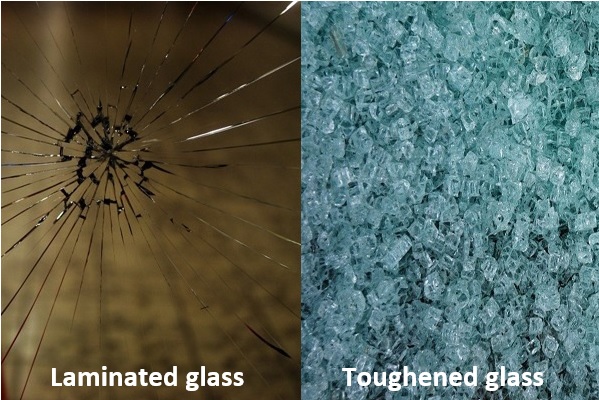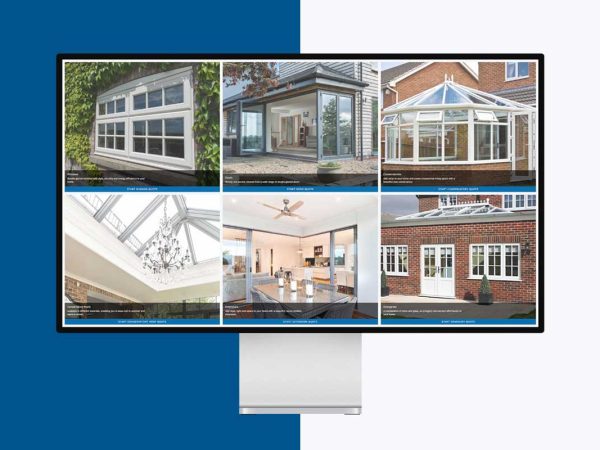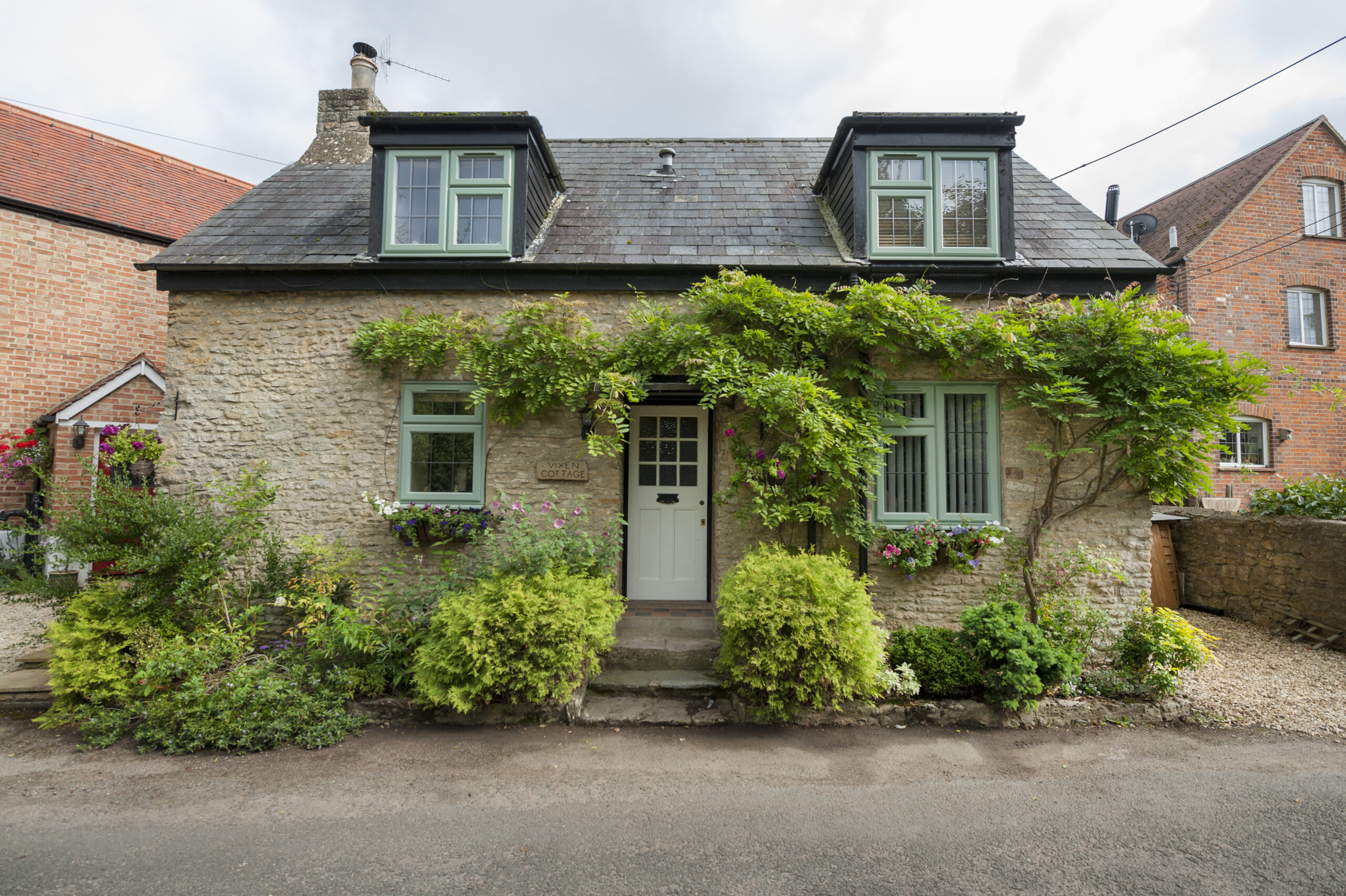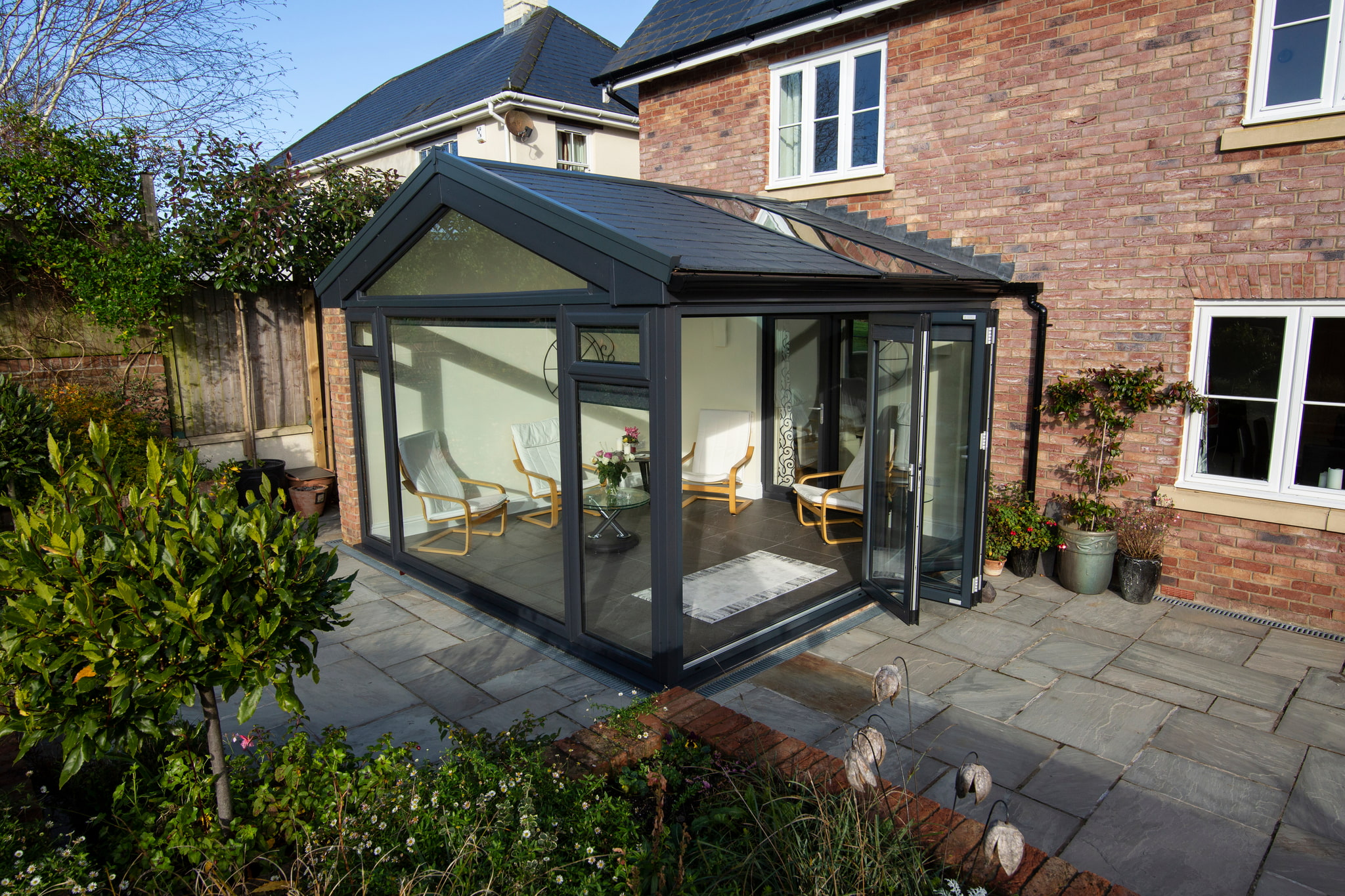Toughened and Laminated Glass

Toughened or Laminated Glass, Which One Should I Use?
Toughened and laminated glass are both called safety glass but are actually very different types of glass. But which one is right for which circumstance?
What Is Toughened Glass?
Toughened glass, sometimes referred to as “tempered“ or “safety glass”, is very simply a stronger version of the standard glass that is used in most windows around the home. It is used in areas where greater strength or safety is needed, for example, in doors, windows near doors or windows at low levels.
To toughen glass, we heat standard “annealed” or “float” glass in a furnace to around 650 degrees and then rapidly cooled. This process changes the structure of the glass, making it around four times stronger than standard glass. The process also changes the break pattern of the glass. So, if broken, it shatters into lots of small pieces, about the size of a finger nail. Instead of a few large sharp pieces like the standard glass. Therefore, it is much safer to use in vulnerable locations around the home, such as in doors or low-level windows.
The normal thickness of toughened glass is 4mm, this is the same as the standard glass. In a double glazed unit you would have two panes of toughened glass, inside and out.
What Is Laminated Glass?
Laminated glass, also known as “safety glass”, is used in vulnerable locations around the home. Sometimes, laminated glass is confused with toughened glass. This is a mistake, as the two differ in several important areas.
One of the most common uses of laminated glass is for car windscreens. If you have ever been unfortunate enough to experience a broken windscreen, you may have noticed that once smashed, the laminated glass holds in place and does not break into large, sharp pieces like standard glass or lots of small pieces like toughened glass. Both of these would be dangerous if you were driving. Instead, it remains intact long enough for you to have a replacement installed.
Laminated glass stays in place because it is made up of two pieces of standard glass. These have a thin, clear plastic interlayer sandwiched between them. The polyvinyl butyral (PB) layer bonds the two pieces of glass together. This means that even when it breaks, the fragments are kept together and intact in one sheet. The standard laminated glass is made up of two 3mm sheets of glass with a 0.4mm PB interlayer, making it 6.4mm overall. Normal toughened glass is 4mm thick. Generally, you would only have one pane of laminated glass in a double-glazed unit, normally the outside pane.

What Are The Main Differences Between Toughened And Laminated glass?
- Toughened glass, when broken, will shatter into many small pieces and fall to the ground as seen in the image above. This reduces the risk of injury when compared to standard glass.
- Laminated glass, when broken, will break, but the PB layer keeps the glass sheet intact as seen above. This reduces the risk of injury compared to standard glass.
- Toughened glass is about four times stronger than standard glass, so it can act as a barrier to intruders. However, once broken, it will shatter into lots of small pieces and fall to the ground, therefore creating an opening for an intruder to exploit
- Laminated glass is easier to break because it is not toughened. However, because it doesn’t shatter and stays in situ due to the PB interlayer, it doesn’t create an opening for an intruder to exploit, offering better security. If an intruder were to spend long enough constantly smashing the laminated glass, then eventually, they would be able to break through and create an opening.
- Laminated glass, because of its improved security, is usually specified in frames that need to comply with the Association of Chief Police Offices, Secured by Design (SBD) scheme. If used for SBD purposes then the interlayer between the pieces of glass will be increased from 0.4mm to 0.8mm. This makes the overall thickness of the glass 6.8mm.
- Laminated glass offers superior UV resistance because of the interlayer. Therefore you will typically get less sun fade on soft furnishings in your home.
- Laminated glass also offers better noise reduction, as sound waves change as they travel through different thicknesses of glass. If noise reduction is important, then additional options can be considered. These include different PB interlayers that can be used along with different thicknesses of glass. It is commonly referred to as acoustic glass.
- Toughened glass will be more cost effective to buy than laminated glass. Laminated glass costs more to make and takes longer to process than toughened glass.
Toughened Glass Versus Laminated Glass, Which Is Better?
As detailed above, there are some major differences between toughened and laminated glass, and therefore, there is no definitive answer. It is important to understand what your requirements are for the glass and possibly what location you plan to use it in.
For example, if safety is your major concern, toughened glass can be the most cost effective solution. If your main priority is security, laminated glass would be the best option, but it will cost more.
It is possible to combine toughened and laminated glass in the same double-glazed unit. Typically, the outside pane is laminated glass and the inside pane is toughened glass. This would give you the best of both worlds as you would get a very secure external pane which would make it difficult for intruders to break through, while having a cost effecting safety glass on the inside.
Toughened glass is often the first consideration for strength, breakage resistance and value. Laminated glass is often the product of choice for security, UV resistance, and sound considerations. Ultimately a lot of the time the choice between toughened and laminated glass is down to personal preference and budgetary restraints.
Glass and Glazing Lincolnshire
If you’d like to discuss your requirements for safety glass or get more information on toughened glass, we are more than happy to offer our advice and expertise. For a free, no-obligation quote for windows, doors or a conservatory in Lincolnshire and Nottinghamshire, you can call us on 01522 512 020 or visit our Lincoln showroom, which is open 7 days a week. Alternatively, get a free online quote from the comfort of your home. Starglaze Home Improvements offers a wide range of uPVC and aluminium windows, doors and conservatories.






